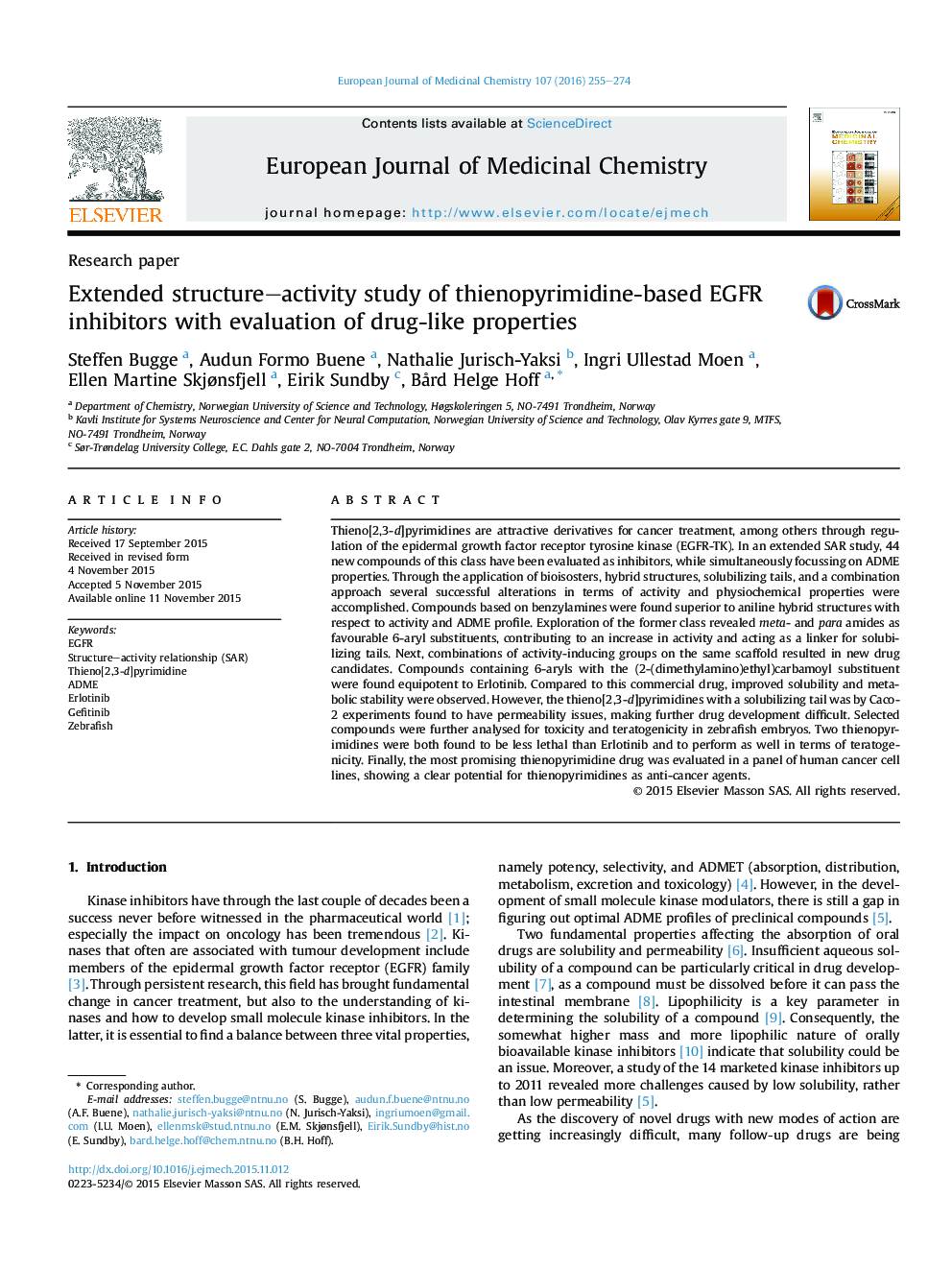| Article ID | Journal | Published Year | Pages | File Type |
|---|---|---|---|---|
| 1393928 | European Journal of Medicinal Chemistry | 2016 | 20 Pages |
•SAR, ADME and zebrafish study on thienopyrimidine based EGFR inhibitors (46 ex.).•Benzylamine based structure had better activity and ADME profile than anilines.•Three highly active and metabolic stable derivatives discovered.•The dimethylaminoethyl carbamoyl substituent led to high efflux ratios.•The most promising candidate was profiled in 17 cellular assays.
Thieno[2,3-d]pyrimidines are attractive derivatives for cancer treatment, among others through regulation of the epidermal growth factor receptor tyrosine kinase (EGFR-TK). In an extended SAR study, 44 new compounds of this class have been evaluated as inhibitors, while simultaneously focussing on ADME properties. Through the application of bioisosters, hybrid structures, solubilizing tails, and a combination approach several successful alterations in terms of activity and physiochemical properties were accomplished. Compounds based on benzylamines were found superior to aniline hybrid structures with respect to activity and ADME profile. Exploration of the former class revealed meta- and para amides as favourable 6-aryl substituents, contributing to an increase in activity and acting as a linker for solubilizing tails. Next, combinations of activity-inducing groups on the same scaffold resulted in new drug candidates. Compounds containing 6-aryls with the (2-(dimethylamino)ethyl)carbamoyl substituent were found equipotent to Erlotinib. Compared to this commercial drug, improved solubility and metabolic stability were observed. However, the thieno[2,3-d]pyrimidines with a solubilizing tail was by Caco-2 experiments found to have permeability issues, making further drug development difficult. Selected compounds were further analysed for toxicity and teratogenicity in zebrafish embryos. Two thienopyrimidines were both found to be less lethal than Erlotinib and to perform as well in terms of teratogenicity. Finally, the most promising thienopyrimidine drug was evaluated in a panel of human cancer cell lines, showing a clear potential for thienopyrimidines as anti-cancer agents.
Graphical abstractFigure optionsDownload full-size imageDownload as PowerPoint slide
